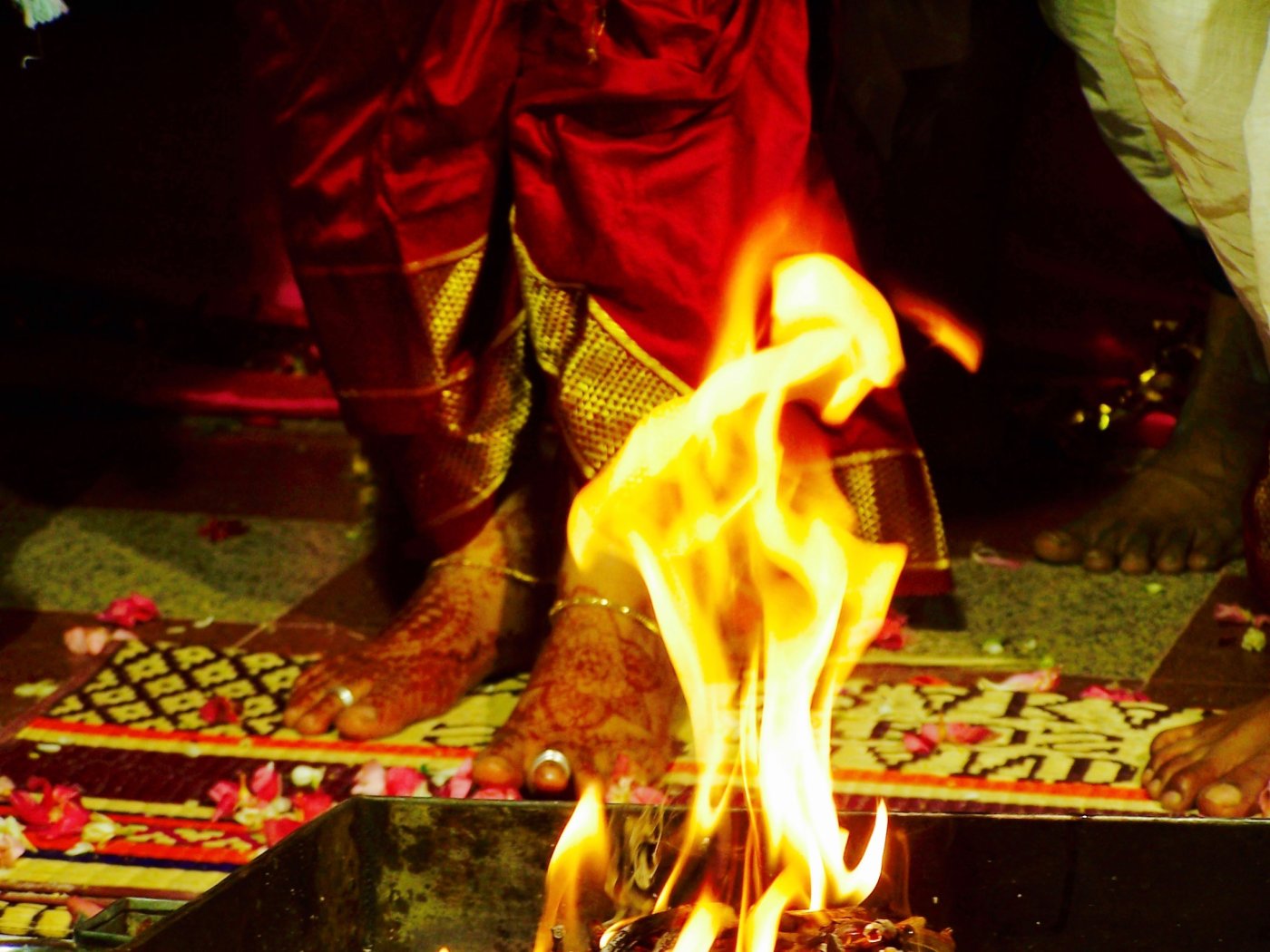Agra: When she accompanied her parents to a mass marriage programme one morning in June 2022, A*, the eldest daughter of a family in Sikandra, a township on the outskirts of Agra in western Uttar Pradesh (UP), expected to be married in a few hours.
Fifty-two couples tied the knot that day at an event sponsored by the Agra Municipal Corporation under the UP Mukhyamantri Samuhik Vivah Yojana (chief minister mass wedding scheme). A was sent away even though her father, a locksmith by profession, had registered and handed over to the organisers apparel, ornaments, utensils, furniture and a cooking gas cylinder as items the family was giving her as dowry.
According to A’s mother, they may have been sent away as they follow Sikhism, and the weddings solemnised at the event were all conducted by Hindu priests.
A was, however, officially listed as married that day. For more than seven months afterwards, A’s family ran from pillar to post to get Rs 35,000, meant to be deposited into the bank accounts of young women married under this government scheme.
A non-profit organisation that had helped her to register for the scheme took her bank passbook and withdrew the entire sum. The family managed to get the money allegedly on payment of a commission, amounting to more than 10% of the grant, to the non-profit.
A was eventually married at a ceremony arranged by her family nearly six months later, in December 2022.
In a similar case, B and C, cousins in their early twenties, did not have a religious ceremony at the municipality-funded wedding event though they had registered and completed the formalities under the government’s mass marriage scheme. B’s mother said there was no arrangement for a wedding according to Islamic rituals at the venue. The girls were marked as married, but the families had to anyway spend money to organise a nikaah. “We had to get both the girls married later according to the customs of our religion,” she told Article 14.
The UP Mukhyamantri Samuhik Vivah Yojana, launched in 2017 by UP chief minister Yogi Adityanath, offers financial assistance for the marriage ceremony of girls from poor families.
Under the scheme, each married couple is provided a subvention of Rs 51,000—of which Rs 35,000 is given as a cash assistance paid into the bride’s bank account while the remaining sum is meant for expenses including utensils, jewellery for the wedding and for organising the mass wedding event. The scheme is implemented under the supervision of the district magistrate with the responsibility of organising the events entrusted to the social welfare department.
The government website announcing the scheme details does not state if only Hindu wedding ceremonies will be conducted.
Until 2021, as many as 22,780 weddings were registered as having been held through the scheme. As per data on the government website, the budget for the scheme was Rs 125 crore for 2020-21, and Rs 250 crore for Rs 2021-22, growing to Rs 600 crore for the year 2022-23.
However, in case after case that Article 14 investigated, it emerged that middle-men, some masquerading as non-profit organisations, pilfered portions of the financial assistance; couples from religions other than Hinduism found it difficult to be married under the scheme; others struggled to avail the cash assistance.
In other cases, ineligible applicants were included as beneficiaries, a handful of local institutions and individuals worked as intermediaries who took money in advance from applicants in lieu of a promise that the financial assistance under the scheme shall be obtained. In some cases, intermediaries confiscated the beneficiary's bank passbook and ATM cards, and withdrew the money fraudulently.
Widows and divorcees who are remarrying may also apply for assistance under this scheme. Applications require prospective beneficiary women to submit copies of their Aadhaar card, age verification certificate, the bride’s father's income certificate, her bank passbook, and a Below Poverty Line ration card. In some cases, no age verification document was attached, nor sought at the marriage venue.
“We will investigate all cases of fraud brought to our notice,” Agra district magistrate Navneet Singh Chahal told Article 14. “Action will be taken against any officials involved.”
NGO Kept Girl’s Passbook, Withdrew Grant
In the case of A, it was Alka Singh of Alka Welfare Society in Agra who informed the family about the scheme and advised them to submit an application. Under the scheme, local non-profits are given the responsibility of helping local government bodies organise the group wedding events.
A has two younger sisters. Besides grazing sheep and goats with her mother, the girls also contribute towards household income by pasting sequins on plain glass bangles. These are sold in the Agra and Firozabad markets, fetching the girls a paltry Rs 50 for every 165 bangles sold.
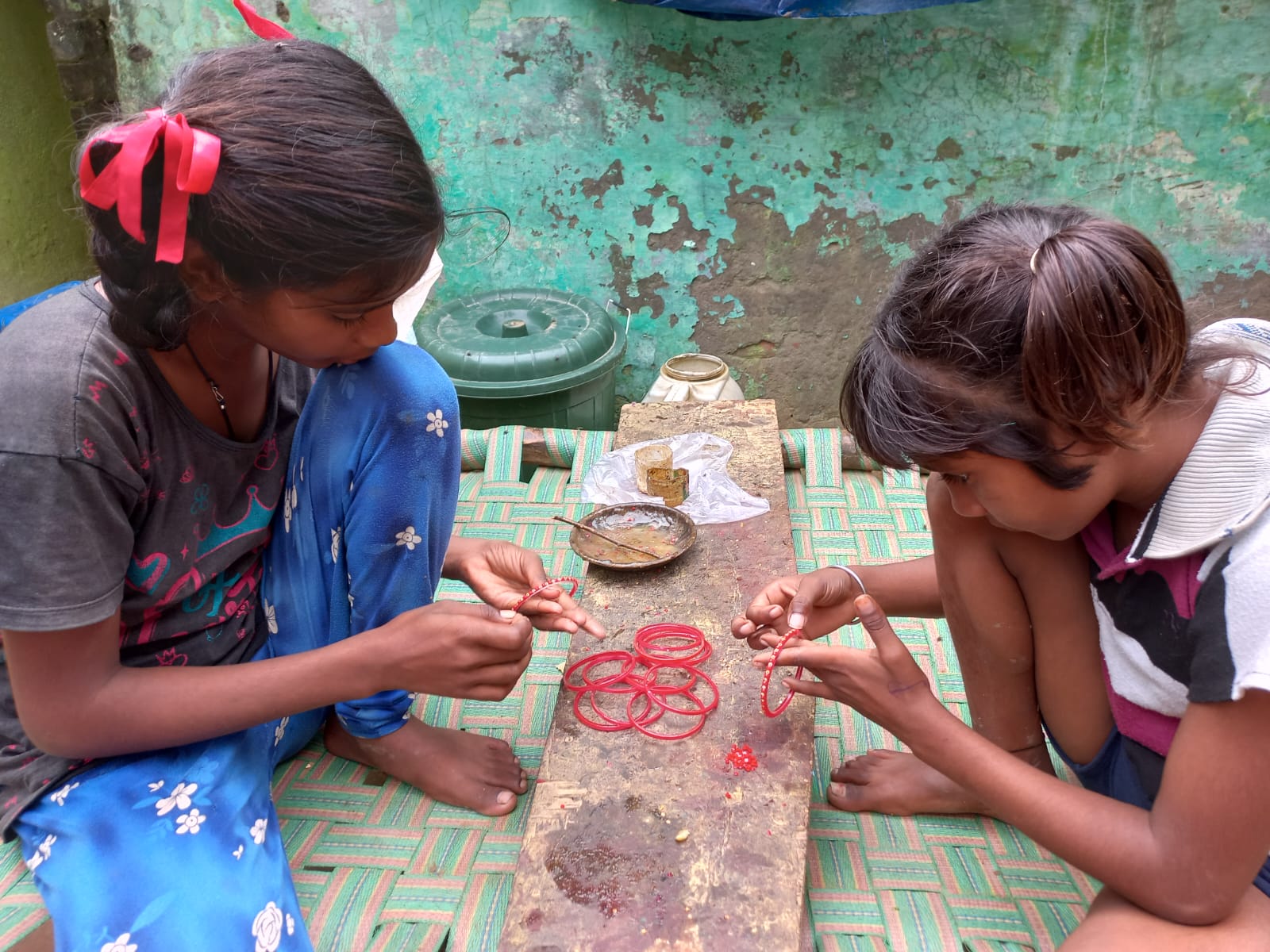
A’s father is a locksmith, her mother works alongside the girls on the bangles.
Until her wedding, A lived with her family in a home of mud and bamboo poles with a tin roof, the only furniture in their 6 feet X 6 feet home being a cot and a trunk to keep clothes.
A picture of Guru Nanak hung on one wall, another of pigeons and a third picture of two swans occupied the other walls, alongside some pictures of movie stars. Near an earthen hearth in the courtyard stood a few goats, tied to old bicycles. On a cot, A’s younger sisters worked with their sequins and bangles.
The girls dropped out of school several years ago..
A said she had given her bank passbook to Singh at the time of filling out the application form. “That's why I could not even check at the bank myself whether the cash had reached my bank account,” she said. After repeated attempts, A and her mother managed to get Singh to come to the Canara Bank’s Bainpur Mustakil branch, where A has an account.
“Madam (Singh) asked me to sign at two places, but I didn't know what those signatures were for,” A told Article 14. Upon enquiring, Singh reportedly told her it was for a KYC (know your customer) verification. The girl returned home, her passbook still with Singh.
A senior clerk in the municipality confirmed to Article 14 that a photocopy of the bride’s passbook is required to be submitted with the application, but not the original bank passbook.
With no update on the cash for weeks, A and her mother visited Singh's office, requesting that the passbook be returned. “My mother and I were humiliated, and I could not understand why she was not giving me my passbook.”
They insisted on getting the passbook, however, and A visited the bank the following morning. On getting the passbook updated, she was told the financial assistance sum had been withdrawn from her account, allegedly by Singh.
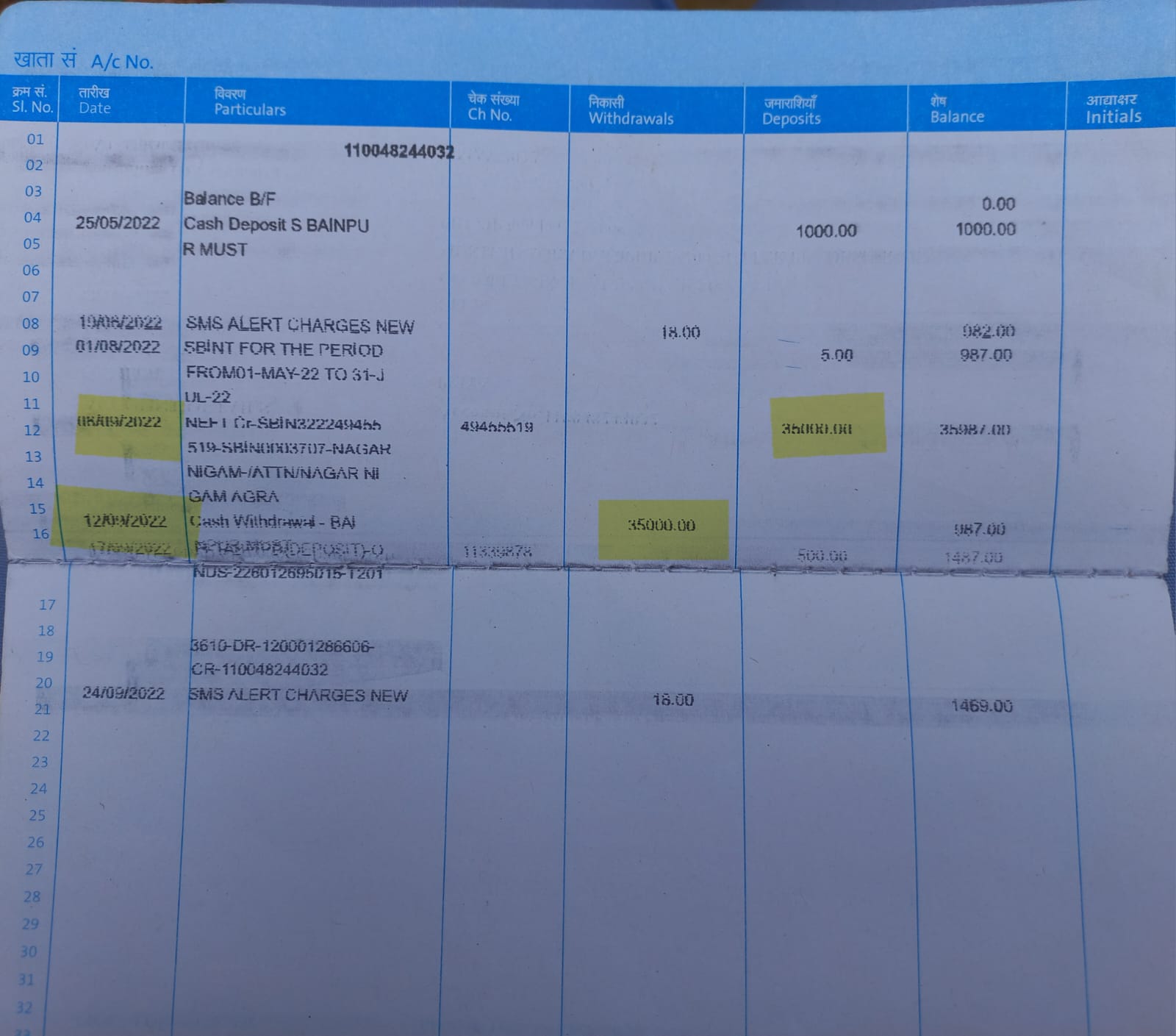
The girl and her mother confronted Singh, who reportedly claimed she had withdrawn the sum to hand over to the family in cash. (The municipal clerk confirmed that under the scheme, the money is deposited in the bride’s account, and nobody is required to withdraw it and hand it over in cash.)
To give the cash, Singh allegedly sought a payment of Rs 11,000 for services provided by her organisation. As tempers flared, Singh reportedly settled for Rs 4,000 of the grant amount of Rs 35,000. As she handed the cash over, her son took a photo, said A.
Speaking to Article 14, Alka Singh denied that she even ran a non-profit, and said she had not filled out any application forms under the mass marriage scheme. “I am a member of a non-governmental organisation named Seva Bharti, and all the volunteers of this NGO are called to attend the mass marriage programme at the wedding venue,” she said.
Singh has been a member of the Seva Bharti group for three years. The Seva Bharati is affiliated to the Rashtriya Swayamsevak Sangh (RSS) and is the official community service arm for other affiliates.
As per official records, A was married in June 2022 under the UP Mukhyamantri Samuhik Vivah Yojana. In reality, she was married on 4 December 2022.
As per the transaction entries in A’s bank passbook, the Agra Municipal Corporation deposited Rs 35,000 into her account on 8 September 2022, which was withdrawn on 12 September 2022.
A finally managed to get the cash in the last week of October 2022.
ASHA Worker Forced To Pay Commission To Avail Benefit
Poonam Devi, 41, an accredited social health activist (ASHA), a health worker enabling last-mile delivery of government services for women and children, also got her daughter married under the same scheme, in June 2022.
Poonam Devi told Article 14 that Singh filled the registration form for her daughter's marriage but allegedly misled her about the sum to be received from the government as assistance, claiming that the grant would be Rs 100,000.
She said it was at the wedding venue that Singh told her the grant is in fact Rs 35,000. Singh allegedly told her she would have to deposit her original bank passbook and Rs 11,000 to avail the benefit.
Poonam Devi claimed Singh snatched the bank passbook from her, and a scuffle ensued. “I help all the women and children in this area,” she said, almost in tears. “I didn’t imagine that such a thing would happen to me.”
After several pleas, she said, she paid Rs 6,000 to Singh and left with her daughter’s passbook. "Due to such incidents, I have lost faith in humanity and government public welfare schemes,” she said.
Alka Singh rejected these allegations too.
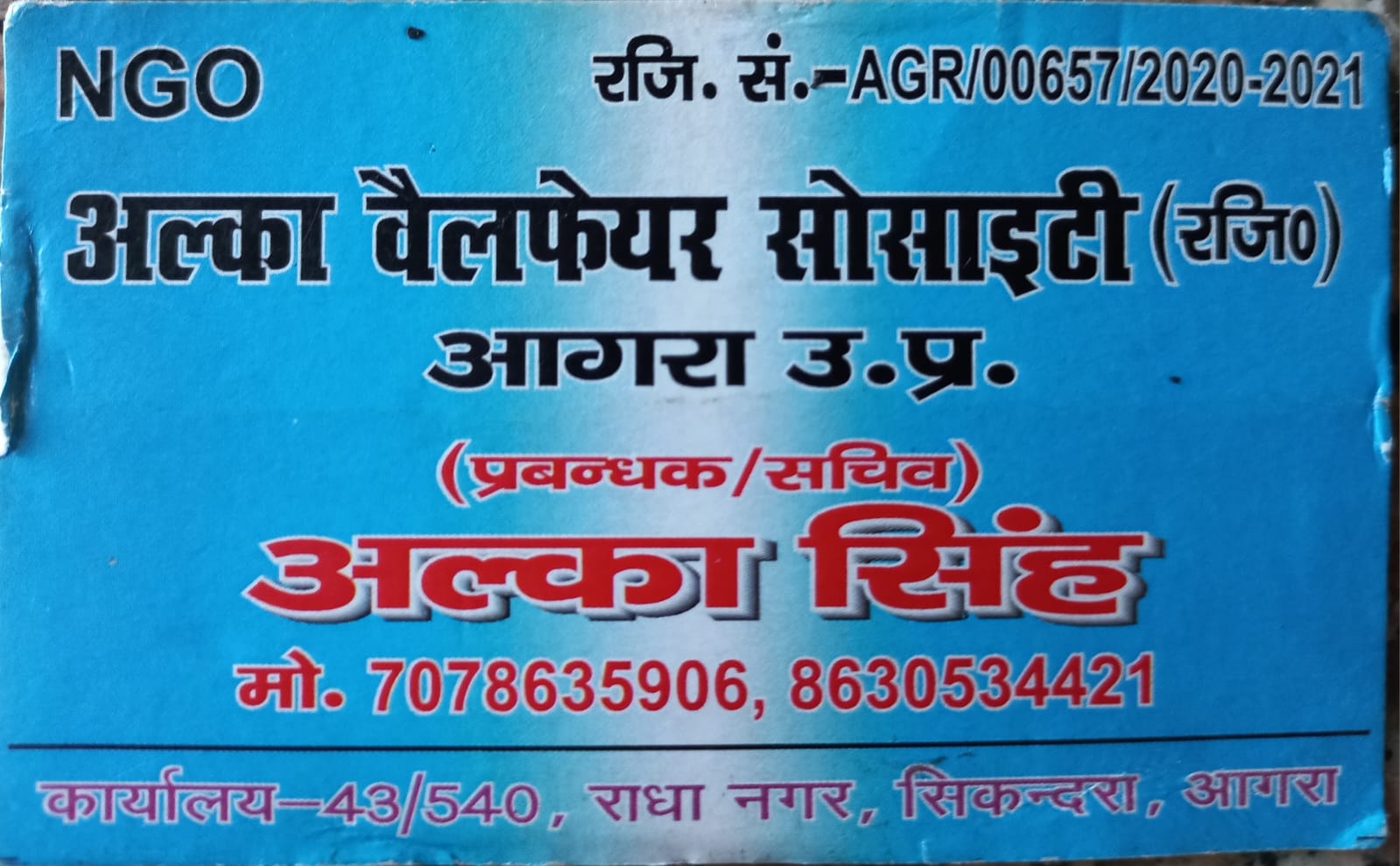
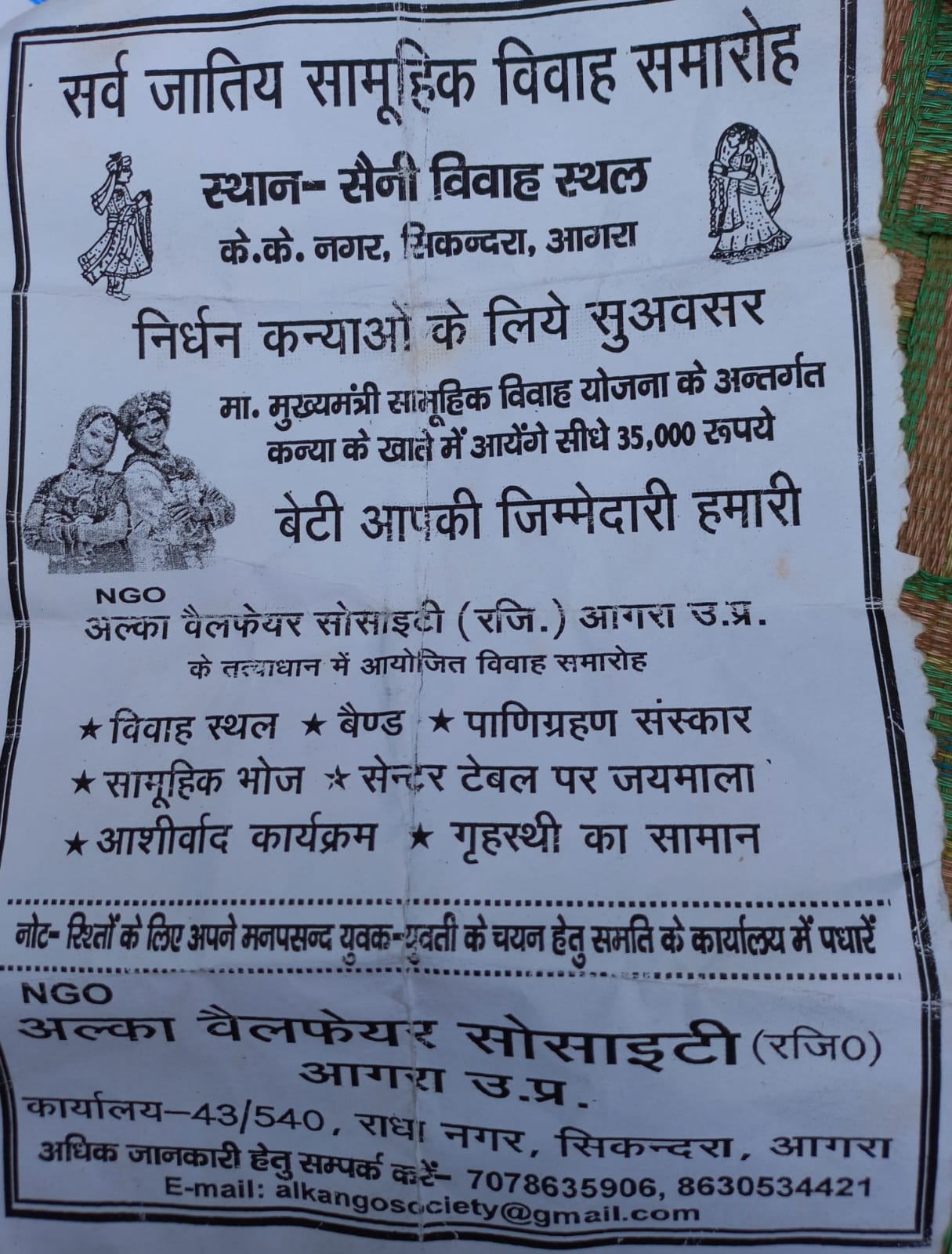
Another NGO Cheats Leather Worker
Yashwant Singh, a leather worker living in Khatikpara, Agra, was allegedly duped by staff of Agra's largest non-profit, Chetna Seva Samiti.
Having lost his own shoe-manufacturing factory after the death of his father and eldest brother several years ago, Yashwant Singh, 35, has had to care for his late brother’s three children, his mother and his sister, on a monthly salary of Rs 15,000.
“Worried about the future of my unmarried daughter, we got her married under the UP Mukhyamantri Samuhik Vivah Yojana,” said Munni Devi, Yashwant Singh’s mother. Relatives had told them about the scheme, meant for women from poor families who could not afford wedding expenses. The family had already found a groom for his sister, Suman, 26.
In April 2022, Yashwant Singh, a relative and the groom's brother visited the office of Chetna Seva Samiti where they filled out the application form for the scheme. They said the NGO’s president Satyaprakash Jaiswal and other co-workers were present in the office at the time.
According to Yashwant Singh, a staff member told them they would have to pay Rs 30,000 with the application form for the mass wedding ceremony, and that the bride’s original bank passbook would have to be submitted too.
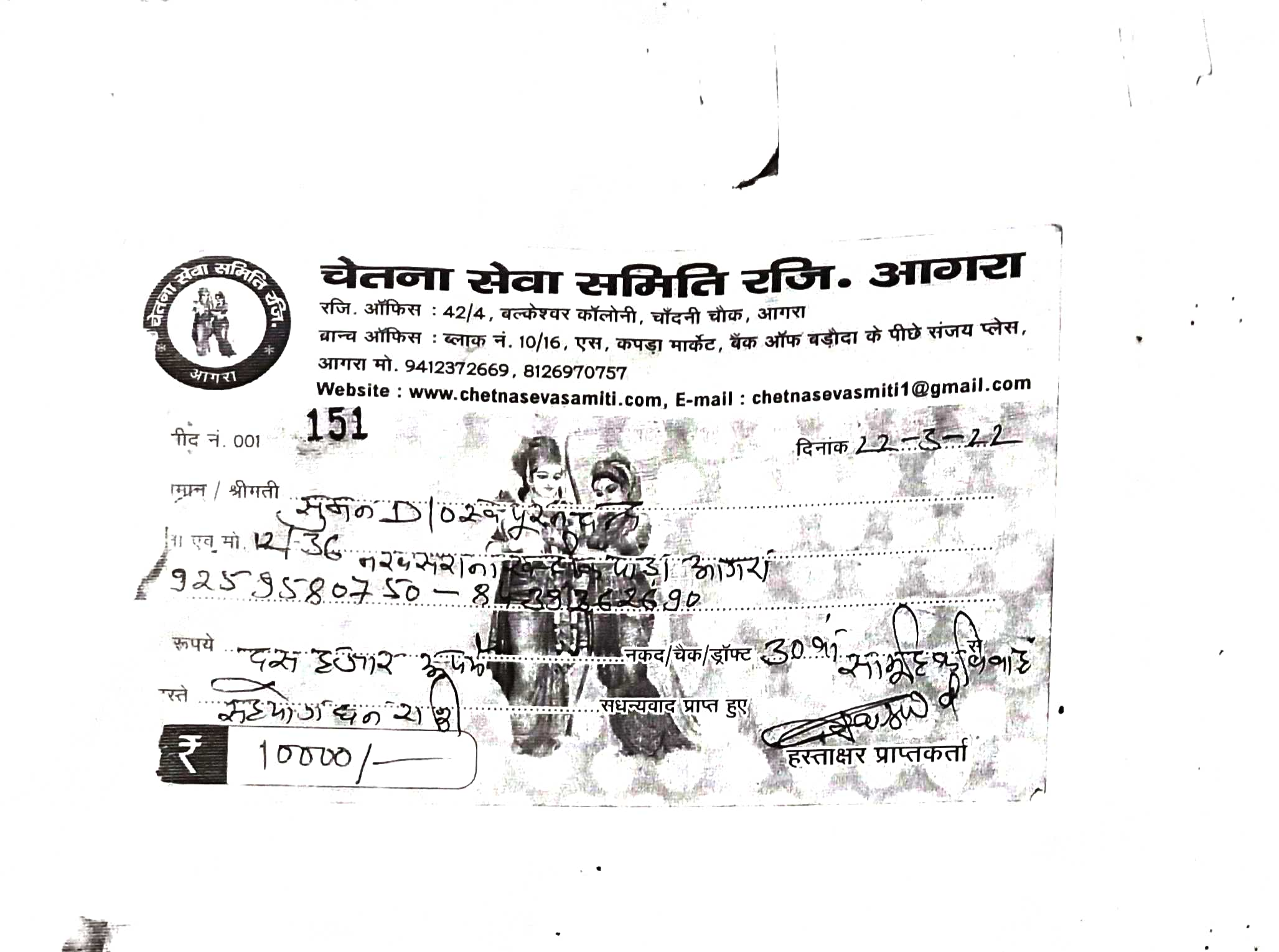
According to the family, the president of the NGO, Jaiswal, himself told them that the payment was towards marriage expenses and dowry items to be given to the bride along with the grant of Rs 35,000.
Yashwant Singh and the groom's brother together paid Rs 30,000 at the office of the Chetna Seva Samiti and filled out the application form. They also left behind Suman’s bank passbook.
Under the scheme, NGOs help organise the mass wedding ceremonies and make people aware about the scheme, but are not authorised to charge any fee from beneficiaries.
Suman was married in June 2022 under the UP Mukhyamantri Samuhik Vivah Yojana. Nearly a year later, the financial assistance under the scheme has not yet been deposited into her bank account.
Yashwant Singh said he has visited the office of Chetna Seva Samiti more than 20 times. “I am wasting my time and the transportation cost, but I don’t have any answer why the sum has not been deposited,” he told Article 14.
Additionally, he was allegedly asked to pay Rs 2,000 to get his sister’s passbook back. “I have been robbed,” he said.
Jaiswal told Article 14 that the UP government did give a contract to his NGO to conduct mass marriages under the government scheme, but in addition, he had been conducting mass marriages through his organisation for seven years. “So far, about 7,500 girls have been married under my NGO,” he said.
He took money from those couples whose weddings his NGO arranged, he said— Rs 20,000 from the groom’s side and Rs 10,000 from the bride’s side. “We give them a dowry of Rs 1 lakh, but we do not take any cash payment from the couples married under the chief minister’s scheme.” Jaiswal said agents who fill out forms for mass marriages may have extorted money from applicants.
No Arrangements For Muslim Couples
B and C, cousins in their early twenties, were listed as beneficiaries of the scheme in November 2021, though both girls had wedding ceremonies later.
B’s date of birth as per her Aadhaar card is 1 January 1999, while C’s date of birth is given as 1 January 2003. More than a year later, neither girl has received the cash assistance under the scheme.
C’s mother said rituals at the mass wedding event were all as per Hindu customs only, and the families organised nikaah ceremonies for the girls later.
B’s mother told Article 14 that only copies of their Aadhaar cards, bank pass books and passport size photographs were sought, not age verification documents were requested or supplied.
Grant Paid to Couple Who Were Not Married
D, 26 years old, applied to be a beneficiary under the scheme in June 2022.
Residents of Agra, she and her fiancée attended the mass marriage event, signed a confirmation for their marriage and departed from the wedding hall. Neither the bride nor the groom wore a wedding dress. They were not married, D said, and yet the financial assistance of Rs 35,000 was transferred to the girl’s bank account.
Article 14 found that D gave her bank passbook and ATM card to her fiance, who operated a public services centre in Shahganj, in Agra. He withdrew the financial assistance paid by the government and subsequently refused to marry her, though their registration was approved at the event.
D’s family has struggled on multiple fronts. Her father died in 2012. They lost their house in Shahganj due to indebtedness.
D and her mother moved to a relative’s home while her younger brother works in Rajasthan.
“I was not married according to customs at the wedding venue, but the money reached my bank account, about which Arun had not informed me,” D told Article 14. “He did several transactions from my bank account. And now he doesn't talk to me. He abuses me and behaves indecently.”
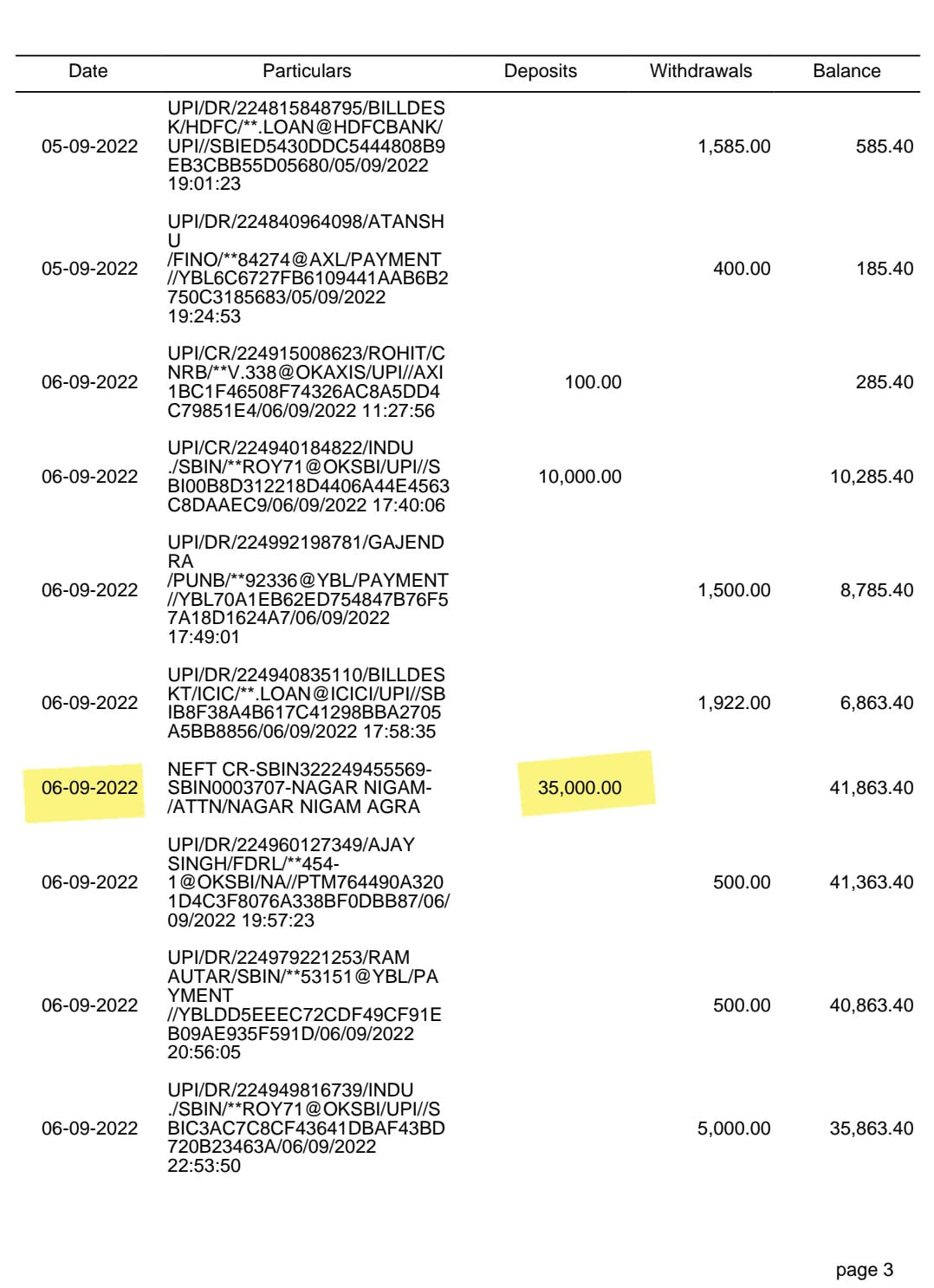
D has not shifted into his home as Arun's family and relatives did not acknowledge the registration at the mass marriage event. Her own family also wants her to get married again as per social customs. “We don't have the money to get married again.”
In any case, Arun was not interested, she said, and either quarrels at the mention of a wedding or avoids it. “He betrayed me.”
D said she did not receive a marriage certificate and so could not challenge his behaviour publicly.
Naresh Paras, an Agra-based women and child rights activist, said that the government scheme D was married under includes a provision to provide a marriage certificate to married couples. “Cases of domestic violence and harassment can increase due to not providing a marriage certificate in the mass marriage ceremony,” Paras told Article 14. “There can also be trouble in initiating court cases, etc.”
Bogus Couples: Same Phone Number For Over 30 Couples
In the years 2021 and 2022, 81 couples were married at Agra Municipal Corporation’s mass wedding events under the scheme.
In at least 38 cases, mobile numbers of the married couples appeared to be fake. The same mobile number was listed against 31 couples.
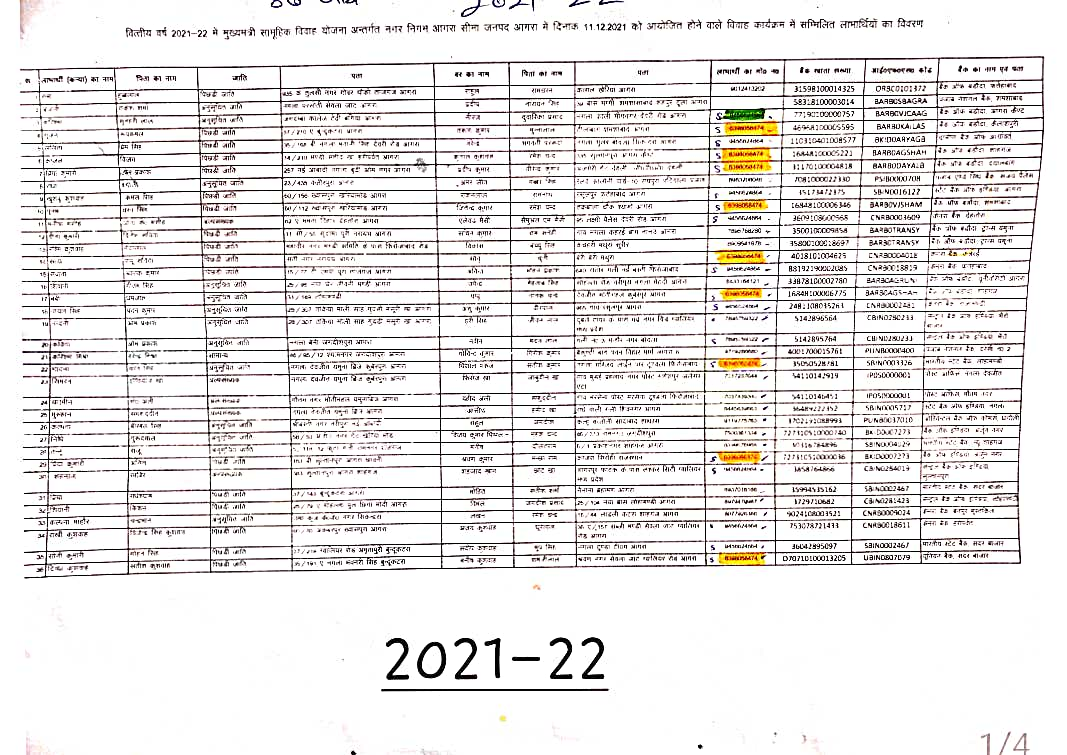
On calling these numbers, the scheme beneficiaries refused to speak to Article 14.
Right To Information activist Naresh Paras sought details from the administration of two dozen districts on the implementation of the scheme and the list of beneficiaries. None has shared the information.
The Agra Municipal Corporation’s health officer told Paras that he would need to pay Rs 2,000 for photostats and would also have to attach an affidavit citing a reason for seeking the information as well as declaring that the information would not be misused.
Under the Right To Information (RTI) Act, 2005, applicants are not required to state a reason for seeking information. Paras has filed his first appeal against the order of the public information officer.
January 1: A Common Birth Date For Beneficiaries
E, aged 22, was married under the UP Mukhyamantri Samuhik Vivah Yojana in November 2021, also at an event organised by the Agra Municipal Corporation.
More than a year later, the grant money has not yet been deposited in her account. Her date of birth, as per her Aadhaar card, is 1 January, 1999.
Upon investigation, it emerged that a large number of young women married under the scheme had 1 January or 1 March as their date of birth.
In many Aadhaar cards, the birth dates of the mother, father, daughter and the groom are given as 1 January.
A said that for registration, she submitted only her bank passbook, Aadhaar card and passport-sized photo. A told Article 14 she was afraid her application may be rejected because she was very young, and so she updated her age on her Aadhaar card by filling out the required form and getting it signed by a local councillor.
Poonam Devi also submitted only a bank passbook, Aadhaar card and passport-sized photo for her daughter’s marriage application.
The Punjab and Haryana high court ruled in 2021 that an Aadhaar card cannot be a proof of age verification as anyone may change registered information in their Aadhaar card at any time .
The activist Paras, who has been campaigning against child marriage, said Aadhaar cards frequently have an incorrect date of birth, and that young girls’ age must be verified on the basis of birth certificate, education certificate or a medical examination.
“None of these documents is being taken with the applications for beneficiaries of the mass marriage events,” he said. “All married couples’ age should be verified and action should be taken against culprits if a minor is found to have been married under a government scheme.”
* Names of some of the brides were changed to protect their identity.
(Shivani Chaudhry is an independent journalist based in Agra. Reporting for this story was supported by the National Foundation for India’s 2022 fellowships for independent journalists reporting in English.)
Get exclusive access to new databases, expert analyses, weekly newsletters, book excerpts and new ideas on democracy, law and society in India. Subscribe to Article 14.

